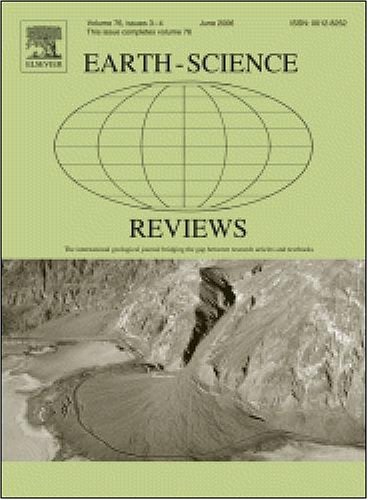Toward a big-data approach for reconstructing regional to global paleogeography and tectonic histories: Preface
IF 10.8
1区 地球科学
Q1 GEOSCIENCES, MULTIDISCIPLINARY
引用次数: 0
Abstract
Geoscience has come to an era of addressing system-scale big science questions through synthesising the rapidly expanding bodies of discipline-based global databases, while sharply discipline-focused in-depth research is conducted to test hypotheses based on such syntheses. Such big-data oriented research has been further empowered by rapid developments in machine-learning-based artificial intelligence (AI) over recent years. This special issue presents some outcomes of IGCP 648 Supercontinent Cycles and Global Geodynamics (2015–2020) that feature work taking a big-data approach to address regional to global geotectonic issues. Papers in this volume have topics ranging from (1) the building of global palaeomagnetic and other geoscience databases, (2) development of statistical approaches and methods for using big-data analysis to address geoscience questions with quantified confidence estimation, (3) examples of applying big-data analysis to synthesise regional geotectonic and palaeographic reconstructions, (4) using big-data approaches to evaluate the chemical evolution of Earth's mantle and its lead isotope system, to (5) using multiple global datasets and geodynamic synthesis to reconstruct ancient Earth history that includes a full-plate reconstruction with palaeolongitude constraints back to 2 billion years, and related geodynamic evolution featuring a hypothesised first-order mantle structure evolution since 1.7 billion years ago.
面向区域到全球古地理和构造史重建的大数据方法:前言
地球科学已经进入了一个时代,通过综合快速扩展的基于学科的全球数据库来解决系统规模的大科学问题,同时进行了以学科为重点的深入研究,以检验基于这种综合的假设。近年来,基于机器学习的人工智能(AI)的快速发展进一步推动了这种以大数据为导向的研究。本期特刊介绍了IGCP 648超大陆旋回和全球地球动力学(2015-2020)的一些成果,其中包括采用大数据方法解决区域到全球大地构造问题的工作。本卷中的论文主题包括:(1)全球古地磁和其他地球科学数据库的建立;(2)利用大数据分析的统计方法和方法的发展,以量化置信度估计来解决地球科学问题;(3)应用大数据分析来综合区域大地构造和古地理重建的例子;(4)使用大数据方法来评估地幔及其铅同位素系统的化学演化。(5)利用多个全球数据集和地球动力学综合重建古代地球历史,包括20亿年前具有古经度约束的全板块重建,以及17亿年前以假设的一级地幔结构演化为特征的相关地球动力学演化。
本文章由计算机程序翻译,如有差异,请以英文原文为准。
求助全文
约1分钟内获得全文
求助全文
来源期刊

Earth-Science Reviews
地学-地球科学综合
CiteScore
21.70
自引率
5.80%
发文量
294
审稿时长
15.1 weeks
期刊介绍:
Covering a much wider field than the usual specialist journals, Earth Science Reviews publishes review articles dealing with all aspects of Earth Sciences, and is an important vehicle for allowing readers to see their particular interest related to the Earth Sciences as a whole.
 求助内容:
求助内容: 应助结果提醒方式:
应助结果提醒方式:


